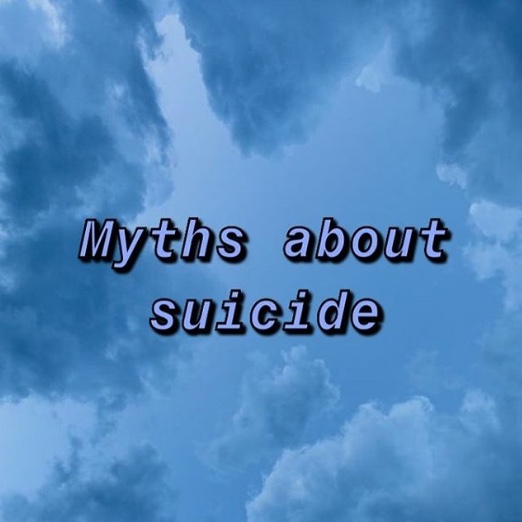There are a few misconceptions about suicide that people have if they have never had suicidal thoughts themselves.
1. It’s dangerous to ask someone if they’re considering suicide. This is a common misconception because people feel that bringing up the idea to a vulnerable person will make them more inclined to want to self-harm. However, this is not the case. It is very difficult for someone to openly admit that they’re suicidal, so by asking them about it, you provide them with an opportunity to present how they’re feeling. Those who are suicidal want someone that they can talk to who they know won’t judge them.
2. People who are suicidal will always find a way. This is another misconception, because usually there is constant debate in a suicidal person’s head whether they should take their life or not. You should believe that offering help to someone who is suicidal can make a big difference and can save their life.
3. People take their life “out of the blue”. Wanting to take your life is a big decision, and is therefore not one that is made impulsively. Those who are suicidal usually have months or years of negative emotions weighing them down until they feel that they can’t take anymore. This is why it’s important to recognize warning signs of depression or hopelessness in your loved ones so you can offer help if necessary.
4. Those who are “successful” are at a low risk of suicide. The phrase “money doesn’t buy you happiness” can be applied to this. Our society characterizes success by the amount of money you make and the prestige of your job when it should be about how happy you are in what you’re doing. You could be making 8 figures and still feel that you don’t have a purpose to live.
5. Once someone recovers from having suicidal thoughts they are less likely to become suicidal again. This is false because at any moment things can go wrong in your life which make you feel depressed or hopeless and you can’t control that.
If you ever feel hopeless or suicidal just know that my DMs are always open and I’m here to listen to you without judgement, but if you would rather call the hotline the number is 1-800-273-8255. Don’t be afraid to reach out for help.
Myths about suicide
